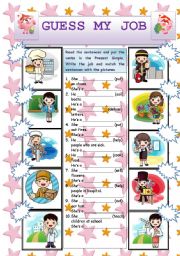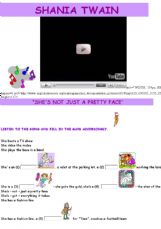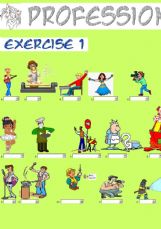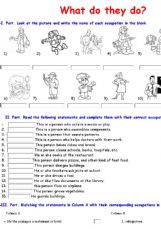sábado, dezembro 23
sábado, dezembro 16
Christmas Games
Publicada por
teacher
à(s)
16.12.17
0
comentários


Enviar a mensagem por emailDê a sua opinião!Partilhar no TwitterPartilhar no FacebookPartilhar no Pinterest
Etiquetas:
Christmas
sexta-feira, dezembro 15
Christmas - game
Interactive Game - Christmas

Revise some vocabulary related to Christmas, hobbies and talents with Santa Claus !

quinta-feira, dezembro 14
quarta-feira, dezembro 6
Present Simple - Review - 5th year
Quando
deverás usar o SIMPLE PRESENT ?
Lê
com atenção e tenta entender.
SIMPLE PRESENT emprega-se para exprimir:
1.
Simples factos ou verdades aceites como tais:
EX: Pupils play
with computers at school.
2.
Acções que persistem no tempo:
EX: She lives in Portugal
3.
Acções repetidas e habituais:
EX: I get up at eight.
She walks to school.
( Neste casos aparece ligado a certos advérbios
ou expressões adverbiais .)
Frequently always every day once a week
usually
sometimes every week
twice a week
rarely often every month several times
never in
the morning
¯ ¯ ¯ ¯
Colocam-se entre o sujeito Colocam-se no
final da frase
(I / she / they / Paul / Mary
and John ) e o verbo. EX: She goes to school every morning.
EX:
They often play football
Vamos agora ver como
AFFIRMATIVE INTERROGATIVE NEGATIVE
I
eat Do I
eat ? I don’t
eat
You eat Do you
eat ? You don’t eat
He
he He
She } eats Does } she eat ? She } doesn’t eat
It
it
It
We eat Do we eat ?
We don’t eat
You eat Do you
eat ? You don’t eat
They eat Do they eat ? They don’t eat
ATENÇÃO:
1.
Nunca podes esquecer o “ S “ na 3ª
pessoa do singular ( forma afirmativa )
Nota:
a) verbos terminados em O , SH,
CH , SS acrescentam “es”
Ex. “goes “
catches” “pushes” “passes”
b) verbos terminados em “Y”
1. Se o “Y” vem a seguir a
uma vogal, não se altera e acrescenta-se “es”
Ex: “plays”
“says”
2. Se o “Y” vem a seguir a
uma consoante, muda para “ie “ e depois
acrescenta-se o “S”
Ex : “ studies “
“flies” “ tries”
2.
Nunca podes esquecer que a Interrogativa se faz com a ajuda de um verbo
auxiliar
“do
“ e “ does “ (esta
última forma apenas para a 3º pessoa do singular- he, she, it )
3.
Nunca podes esquecer que a Negativa se faz com a ajuda de “don’t” e “doesn’t”
(esta última forma também apenas para a 3ª pessoa do
singular.
®Vais mostrar a
ti mesmo que sabes manipular as formas do “Simple Present”
Preenche os espaços em branco com a forma correcta
do “Simple Present” dos verbos que estão entre parêntesis.
1. He __________________(
build ) good houses.
2. She______________________(see) the school
from here.
3. They _____________________ ( always / play )
the piano in the evening.
4. How ___________________( he / like )
chocolate ?
5. She ________________________( not / speak )
to them in French.
6. I _______________( like ) my children very
much.
7. She _______________( know) you quite well.
8. They ____________________ (not / live ) in Chicago
9. Carol __________________ (study) every
afternoon.
10. _____________________ (he / live) with his
parents ?
11. What time _____________________ ( the boys
/ wake up) ?
12. We ___________________ ( sometimes / make )
mistakes.
13. _______________________( she / ever / have
) breakfast at seven ?
14. He ________________ ( fly ) to Madrid
15.
____________________( you / walk) to school every day ?
16. When __________________ ( she / finish)
work ?
17. Where _________________ ( they / live) ?
18. How often ______________________(he / go
swimming) ?
19. She
__________________ (never / watch ) Television on weekdays.
20. My father ________________ ( enjoy)
cooking.
Partilhado pela prof Rosário Barros.
Mto Obrigada ;)
Publicada por
teacher
à(s)
6.12.17
0
comentários


Enviar a mensagem por emailDê a sua opinião!Partilhar no TwitterPartilhar no FacebookPartilhar no Pinterest
Etiquetas:
verbs
Subscrever:
Mensagens (Atom)






































